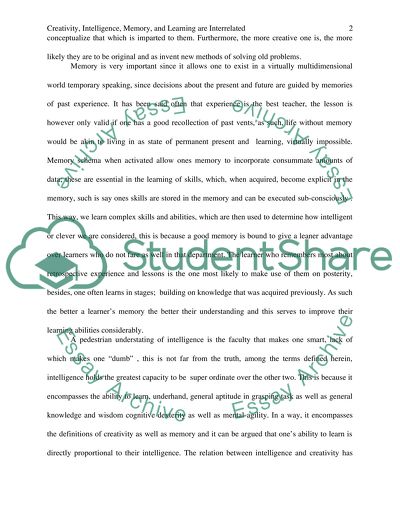Cite this document
(“Creativity, intelligence, memory, and learning are interrelated Essay”, n.d.)
Retrieved from https://studentshare.org/psychology/1466145-creativity-intelligence-memory-and-learning-are
Retrieved from https://studentshare.org/psychology/1466145-creativity-intelligence-memory-and-learning-are
(Creativity, Intelligence, Memory, and Learning Are Interrelated Essay)
https://studentshare.org/psychology/1466145-creativity-intelligence-memory-and-learning-are.
https://studentshare.org/psychology/1466145-creativity-intelligence-memory-and-learning-are.
“Creativity, Intelligence, Memory, and Learning Are Interrelated Essay”, n.d. https://studentshare.org/psychology/1466145-creativity-intelligence-memory-and-learning-are.


